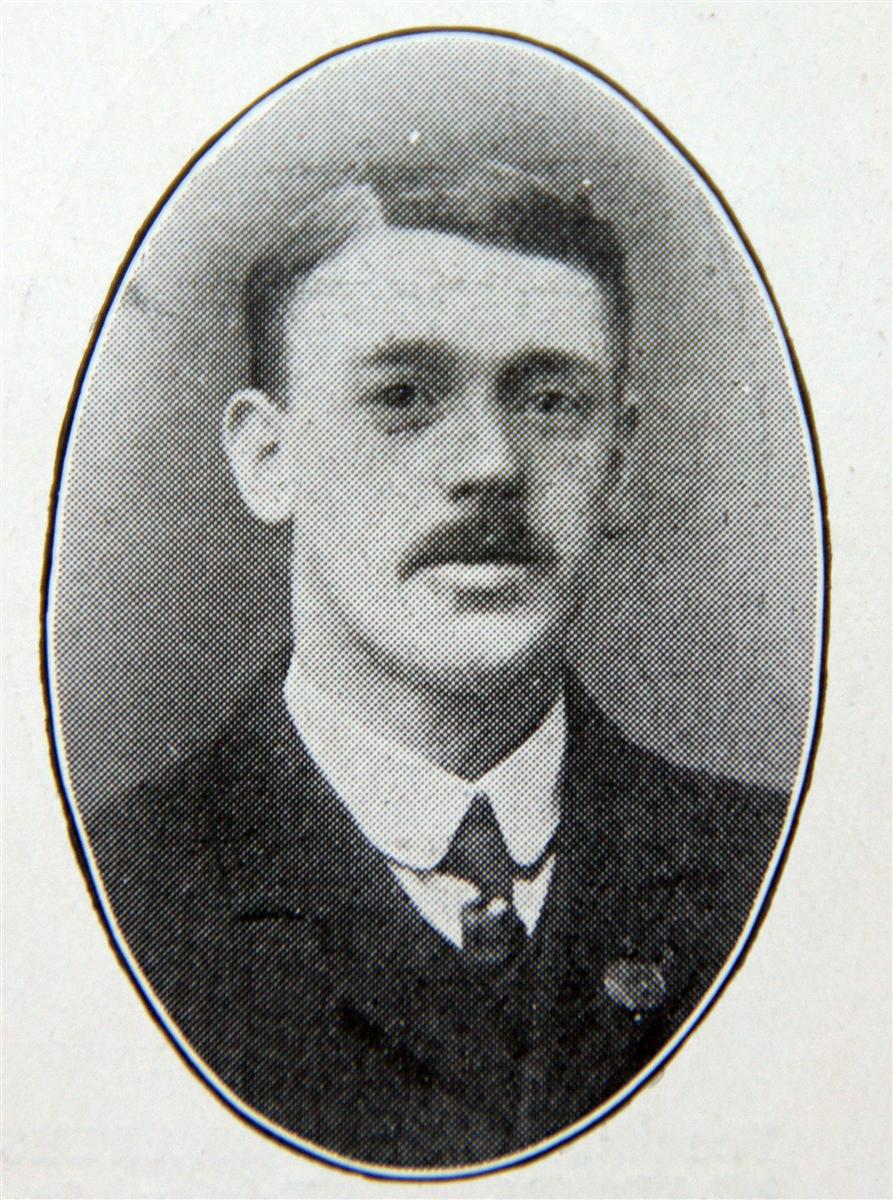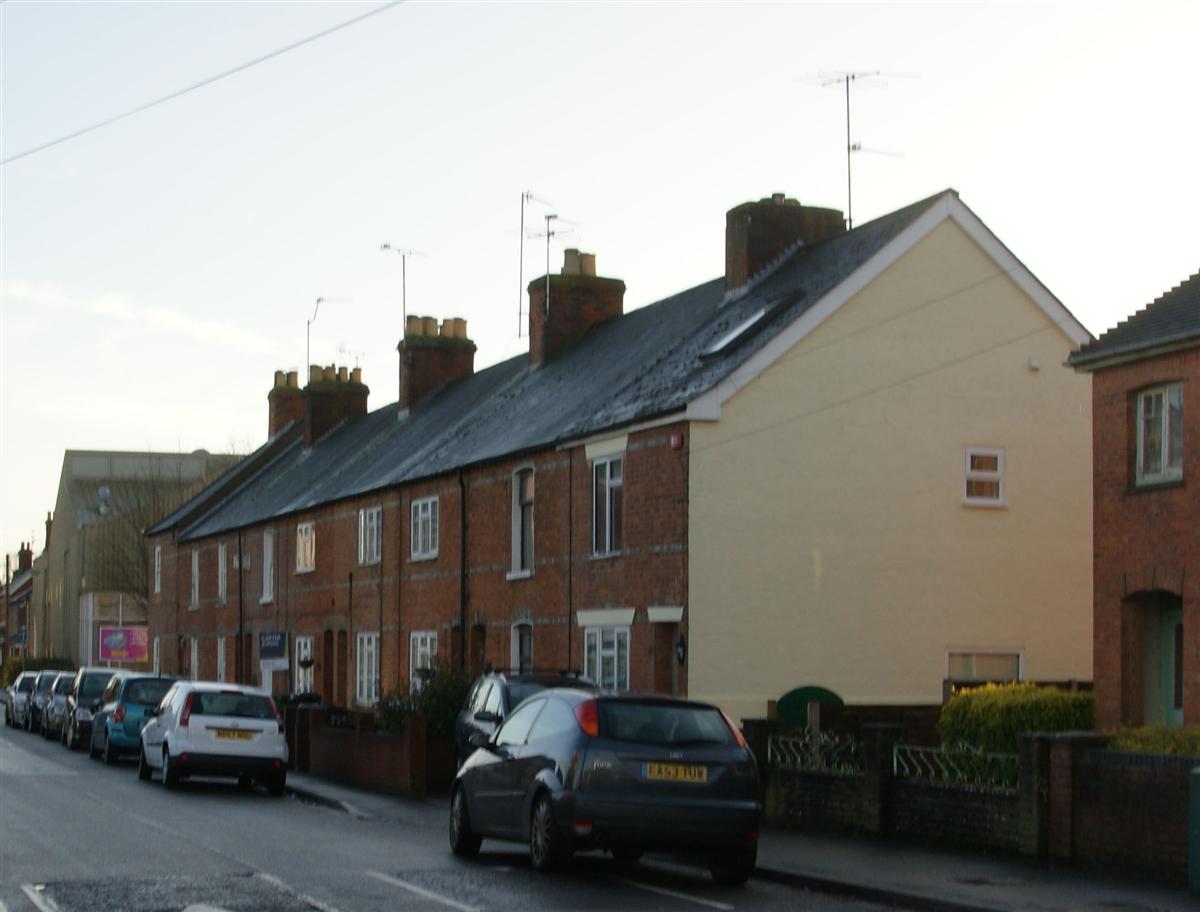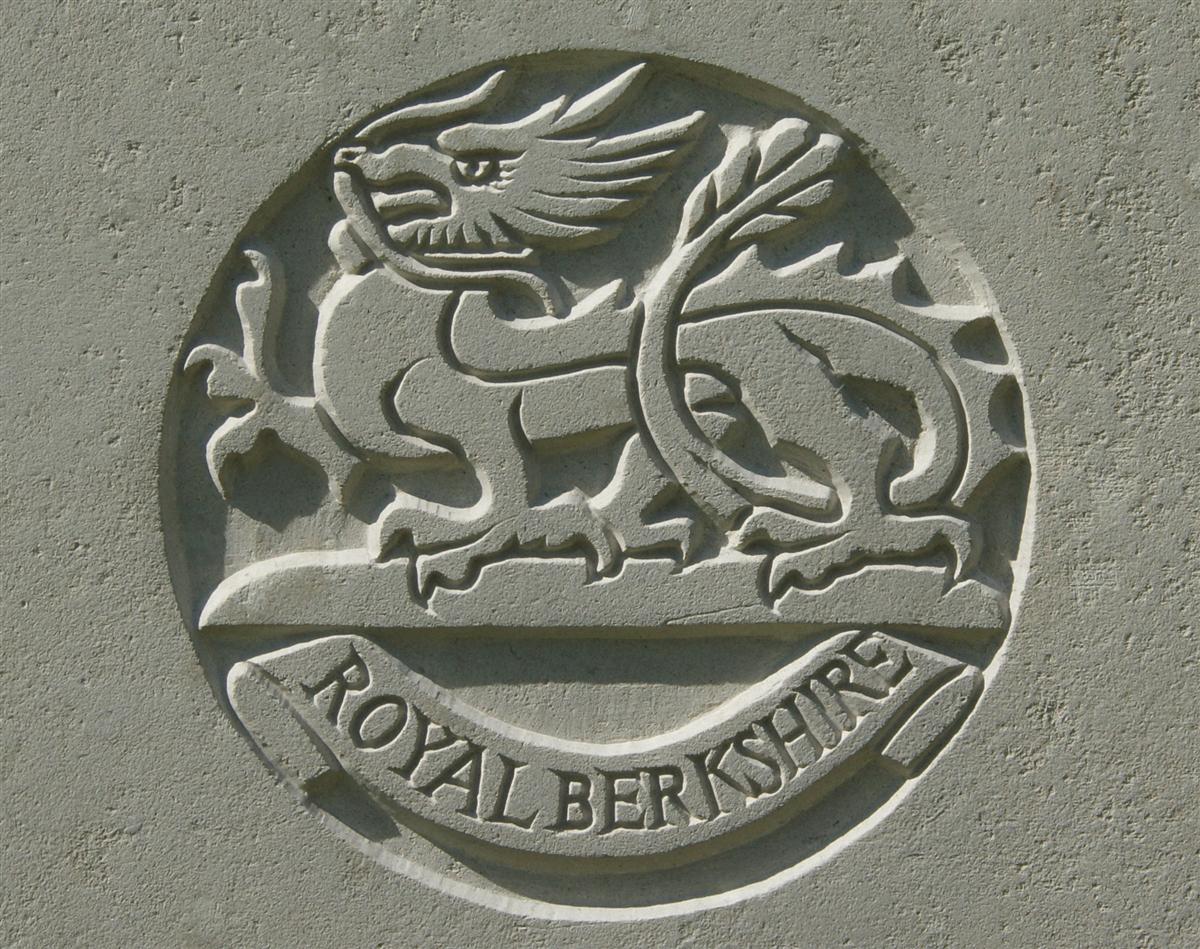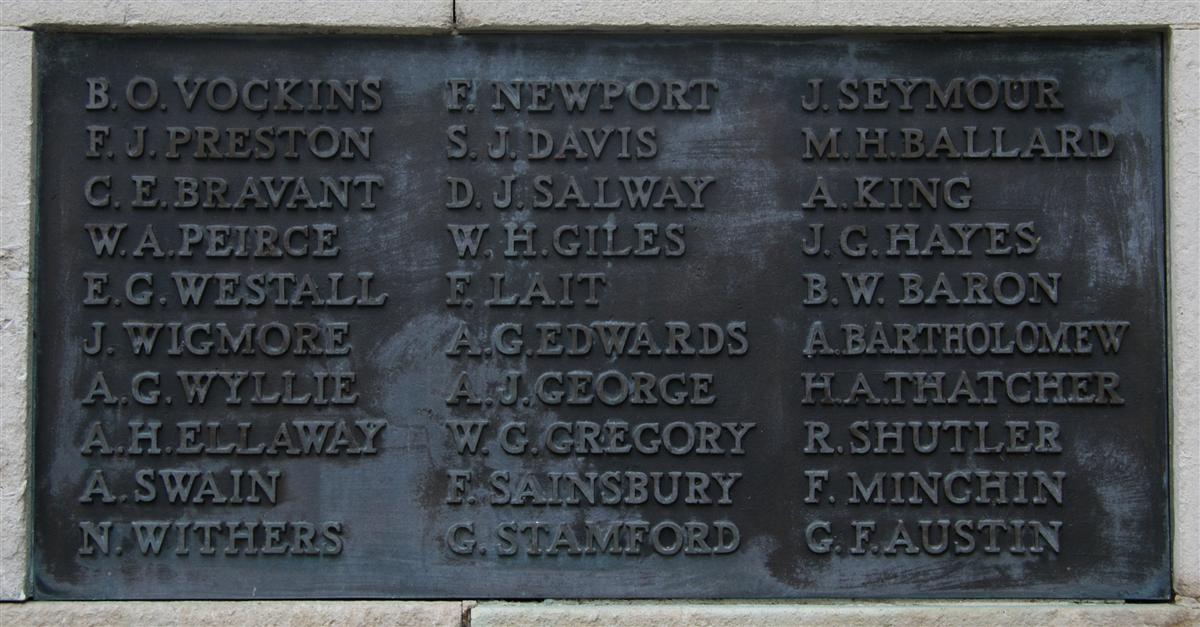Fred Lait
Private 10872 Fred Lait, C Company, 5th (Service) Battalion, Royal Berkshire Regiment
Fred (not Frederick) was born in Newbury on 1 December 1886, the son of Fred Lait and his wife Elizabeth Annie (née Stratton). Fred was the second of four sons, third of nine children raised by Fred and Elizabeth in their cottage at 4 Belvedere Cottage – now 41 Queen’s Road (known as Adam and Eve Road when the Lait’s arrived).
 Fred Lait |
He was educated at St John’s infants in Newtown Road and the National School (St Nicolas’) in Enborne Road. He left school on 28 April 1989 for employment as an errand boy (a typical job for youngsters in a town like Newbury).
Later he was employed as a porter at Alfred Camp’s Drapery Bazaar (the shop that now, much enlarged, operates as Camp Hopson). He then moved to work for Alfred Cary who sold musical instruments etc from a large shop on the corner of Northbrook Street and Park Street (now the Dog’s Trust charity shop and the buildings behind). He was a keen shot and became Captain of the Greenham Rifle Club. For an unknown reason his friends nicknamed him ‘John’.
Fred was one of the many men who enlisted in the first few weeks of the war as a wave of patriotic fervour gripped the nation. After enlisting on 31 August 1914 he was posted to C Company of the newly formed 5th (Service) Battalion of the Royal Berkshire Regiment. This was one of four new ‘Service’ battalions of the Royal Berks that would see active service during the coming months. The 5th Battalion was allocated to the 35th Brigade in the 12th Division. After training the 12th Division crossed to France between 29 May and 1 June 1915; Fred’s date of arrival in the theatre of war is recorded as 30 May.
More training followed as they were introduced to trench life and its associated work by experienced units until they were deemed ready to take their turn in the line. Most of the summer was then spent around Armentieres, just south of the Franco-Belgian border rotating between the front line, reserve and support roles.
During this period Fred wrote home to the local paper:

Belvedere Terrace, Queen's Road, Fred lived at No 4. |
Newbury Weekly News, 29 July 1915 – Local War Notes
Pte F Lait, of Queen’s-road, Newbury, writes from “Somewhere in France”:- “I should very much like to thank the organisers of the Berkshire Tobacco Fund for their kindness in sending papers weekly to the Berkshire boys here, and the papers are very much appreciated. We are having a good, but hard time, and are never happier than when we are in the trenches, where you can do everything but wash, but we make up for that when we come out. Our living is very good, and what is more, the Battalion has never been so healthy as it is at the present time. The Boys are proud of the Borough Roll of Honour, but they still think a good many more names could be added.”
A major offensive was being planned across the coalfields around Loos-en-Gohelle a few miles south – the Battle of Loos began on 25 September 1915. On that day the 8th battalion of the Royal Berks attacked the German lines at Hulloch, north of Loos; among the many casualties was Fred’s older brother Alfred Henry:
Newbury Weekly News, 21 October 1915 – Local War Notes
Lce-Corpl A H Lait, of Queen’s-road, who was wounded on September 25th in France, writing to his parents from No 1 War Hospital, Reading, speaks of the fitness of the Battalion (8th Royal Berks Regt) on the commencement of the big advance. “We had been doing a lot of hard training with a view to this advance, and every man was as fit as a fiddle, and what was more, he knew exactly what he had to do. As a matter of fact we were trained to the hour. Some people think when we are out of the trenches we are idle, but it was not so with us. I cannot hear how many reached Hulloch, but I believe our Battalion did their part well. We also had the 10th Gloucesters in our line, backed up by the Camerons, London Scottish, and Black Watch, so you see this lot looks good enough for anything. The uproar previous to this advance is indescribable when the different sizes of guns, howitzers especially, are at work, and enemy shells are bursting all round, but it is wonderful how soon you settle down to it.
The 5th Royal Berks did not play an active role until the latter end of the battle when, on 13 October they were supporting an attack by the 7th Norfolks on a German trench in Hulloch Quarries. The Norfolks managed to capture part of their objective and called for immediate support. A Company of the 5th Royal Berks , together with some remaining Norfolks, went over the top to bolster the attack. However, they came under heavy machine gun fire and were all but wiped out. The attack was called off but a special party including five parties from the 5th Royal Berks had been sent out in advance of the attack, creeping out to within bombing (grenade) range of the enemy. Men of C Company were involved in this effort, which, though unable to prevent the damage to A Company performed heroically. More casualties were experienced from enemy shellfire as their artillery joined the effort to repulse the British attack. Fred Lait died that day; as a member of C Company it is most likely that his death was the result of the German shelling.

The regimental badge of the Berkshire Regiment, as used on CWGC headstones. |
His body has never been identified so his name is remembered on the Loos Memorial to the missing (panel 94).
His death was announced in the local paper on 4 November and an obituary appeared the following week:
Newbury Weekly News, 11 November 1915 – Local War Notes
Official news was received by Mr and Mrs F Lait, of 4 Belvedere-terrace, Queen’s-road, on Tuesday, November 2nd, that their second son, Pte Fred Lait, 5th Royal Berks Regiment, was killed in action on October 13th. He was for some time employed as porter at the Drapery Bazaar, and later worked for Mr A Cary. He was an enthusiast in military circles and earned the distinction of being Captain of the Greenham Rifle Club, his chums christening him “John”. On the outbreak of war he realised his duty and joined the 5th Royal Berks on August 31st. A few weeks later he passed his firing test, and was spoken of as the second best shot in the platoon, also the third best in the whole battalion, and the Newbury Conservative Club wrote him expressing the committee’s congratulations on hearing of his success. After nine months’ training at Shorncliffe and Aldershot , the regiment left for France early in June. A few days before sacrificing his life, Pte Lait wrote a letter home which expressed a presentiment of his impending fate; the anticipation proved to be true, and he died whilst in action on October 13th. A comrade in his platoon, writing to the deceased’s parents, said “Pte Lait was always a good steady worker and in every way a splendid soldier. I am sure Sergt Rutherford and the whole platoon will miss him very much.”
An elder brother of the above, Lance-Corpl Alfred H Lait, enlisted on September 3rd, 1914, joining the 8th Royal Berks. The regiment was trained at Reading, Codford and Warminster, and he left for France on August 9th last. On September 25th, as is well known, the 8th Berks received a terrible baptism of fire, and were ordered to charge the German lines. During the charge, Lance-Corpl Lait received bullet wounds in the chest and hip, and was removed on a stretcher. He was admitted to Rouen Hospital on September 30th, and after a fortnight’s stay there, was removed to a clearing hospital at Eastleigh. A week later, he was transferred to No 1 War Hospital, Reading. On Monday last, his mother paid a visit to the hospital and found her son in a lame condition but progressing satisfactorily. Yet another son of Mr and Mrs Lait is engaged in the war, namely Samuel James Lait, who is serving on board HMS Dreadnought. He has been a sailor for seven years, and during this time has made many a visit to the British Embassy, formerly at Constantinople.

Fred's name on Newbury War Memorial (centre) |
Alfred survived the war and died in 1958 in Poplar, London.
The third and youngest brother Sidney James also survived; dying in Newbury in 1957.
Locally Fred is remembered on Tablet 4 of Newbury Town War Memorial.

Find a memorial :
| Died this day: | |
| 02 March 1943 | |
| Stanley Hunt | |
| Kintbury |

Like this site? Show your appreciation through a donation to a great charity.